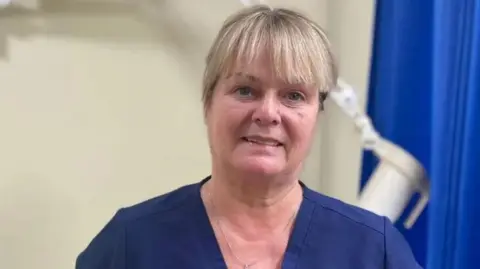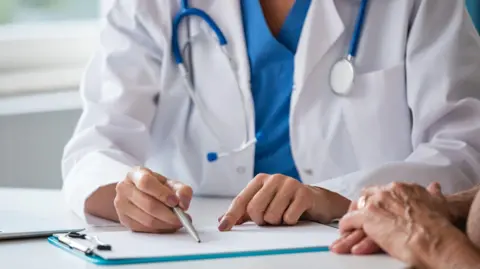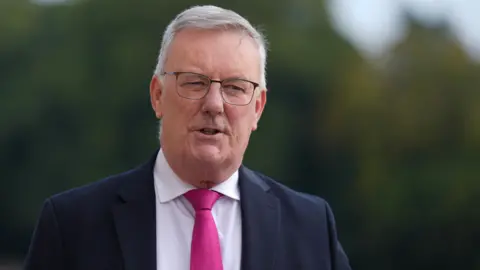'GPs will stop some services if funding deal not met'
 BBC
BBCThe head of the British Medical Associations (BMA) General Practice Committee has called on the Health Minister Mike Nesbitt to meet with them to agree a funding deal or GPs will have to reduce services they provide.
It comes as almost 80% of BMA member GP partners took part in a ballot in which 98.7% voted in favour of action on Friday.
The vote was made after Nesbitt's decision to impose a disputed financial package on GPs after they had previously rejected the deal.
Speaking to the BBC's Sunday Politics programme, Dr Frances O'Hagan urged Nesbitt to open the door to renegotiate this years pay deal.
 Getty Images
Getty Images"The minister has asked us to discuss next year's contract, but it is this year's contract that the vote was taken on and we are in dispute for."
Dr O'Hagan said that without the minister returning to the negotiating table, "we have to look at what services we are providing that are not part of our contract, and stick to our contract so that we can provide more appointments for patients".
She listed the kind of services GPs will not carry out if they move to work strictly within their contracts.
The list includes heart screenings through electrocardiograms (ECGs), taking bloods from the hospital, and follow up investigations carried out in the hospital.
The BMA GP committee requested an additional £39 per patient per year to improve services.
"That is not a lot", said Dr O'Hagan.
"To be offered 50 pence per year per patient, i.e. less than a penny a week to improve access, I don't think many people will disagree with me that less than a penny is not going to improve access in any which way.
"We are seeing 200,000 patients per week in Northern Ireland, that's 10.1 million appointments a year, but clearly that's not enough, and if it's not enough then we have to have a service that can provide enough," she added.

The BMA had made a number of proposed collective actions, external in relation to the ballot.
These included:
- Limiting daily patient consultations per clinician to the UEMO (European Union of General Practitioners) recommended safe maximum of 25
- Serving notice on any voluntary activity
- Ceasing completion of unfunded paperwork
- Switching off Medicines Optimisation Software
In a statement on Friday, the Department of Health (DoH) said it acknowledges the outcome of the ballot, but said it has not yet received details of the planned collective action.
It stressed that any action must respect contractual obligations, protect patient safety, and maintain service access.
The department said it recognises that the primary care system is under "considerable and sustained pressure" while also acknowledging the dedication of GPs and their teams in meeting patient demand.
The DoH stated that, given the department's well-known financial constraints, the additional £9.5 million offered in the 2025/26 GMS [General Medical Services] contract "represented the best possible offer."
"It is a matter of regret that the department has not been able to reach agreement," the spokesperson added.
The department said, as stated by Health Minister Mike Nesbitt on 19 May, that it remains open to discussions on securing the future of general practice.
